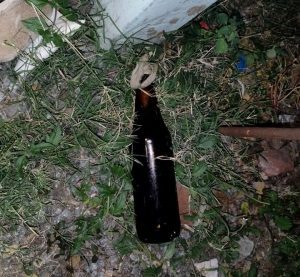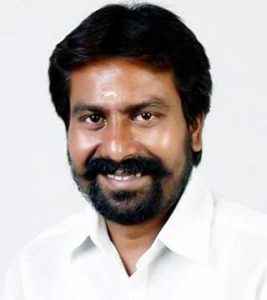With a violent history that casts its communal shadow on the present, Coimbatore continues to be a hotbed of flare-ups.

Coimbatore has had a violent history, and the people have lost trust in the police as well. (Creative Commons)
Over the last few days, Tamil Nadu reported several kerosene/petrol bomb attacks and other violent incidents, mostly targeting members of the BJP and RSS in different parts of the state.
These attacks came in the wake of the National Investigation Agency (NIA) carrying out nationwide raids and arrests of leaders from the Popular Front of India (PFI) and its political wing, the Social Democratic Party of India (SDPI).
Of all the districts in the state, Coimbatore saw the maximum number of kerosene/petrol bomb attacks. At least seven such incidents were reported in a span of three days, apart from other instances where vehicles were damaged by miscreants.
The BJP’s district headquarters, a textile shop, a welding accessory shop run by a local BJP functionary, residences of two members of the saffron party, and two plywood stores were among the places where Molotov cocktails were hurled in Coimbatore.
In view of the attacks, security was stepped up across the district. Companies of the Rapid Action Force, Tamil Nadu Special Police, Commando force, Special Task Force, etc, were deployed at sensitive locations to prevent untoward incidents.
More CCTV cameras were installed, and patrolling was also intensified. Peace meetings were held with representatives from the Hindu and Muslim communities by the district administration.

Image of the petrol bomb that was hurled at the district office of the BJP in Coimbatore. (Supplied)
Following the violent incidents, the Coimbatore police managed to arrest several persons in connection with some of the cases.
For example, an SDPI member was arrested on 26 September for allegedly hurling a petrol bomb at the BJP district office. In another case, two members belonging to the Hindu Munnani were arrested for allegedly damaging the car of a member of the right-wing organisation’s youth front due to personal enmity.
Owing to these efforts, normalcy slowly returned to Coimbatore.
However, a senior police officer well-versed with the sensitivities of the area told South First that normalcy in Coimbatore could be “misleading”, especially for the police if they tend to become laid back and get “fooled into comfort”.
What the officer essentially meant was that Coimbatore is a sensitive region, more so communally, where, if issues are not handled promptly and correctly, they could lead to a flare-up.
But why is Coimbatore prone to communal violence? According to experts and political observers, it is due to a combination of factors.
To begin with, the population of Coimbatore is a diverse mix. While Hindus are in majority, there is a significant minority population as well. Owing to it being an industrial and textile hub, many people from the northern parts of the country migrate to Coimbatore. Also, with the district sharing its border with Kerala, there is a lot of cross-border movement.
Senior BJP leader and Coimbatore South MLA Vanathi Srinivasan told South First that one of the reasons for the communal tensions in the district was several Muslims from Kerala with links to fundamentalist groups operating out of Coimbatore. However, not everyone agrees with this argument.
The population aspect aside, one of the main reasons why Coimbatore remains a communally sensitive zone is its violent history.
Experts say the 1980s marked the beginning of the uneasiness between the Hindu and Muslim communities in Coimbatore.
For instance, the Hindu Munnani — a Hindutva outfit that has a strong presence in Coimbatore — was floated in the 80s in the wake of the mass conversion of 300 Dalit families to Islam in Meenakshipuram of the Tirunelveli district. This incident turned the attention of right-wing groups to Tamil Nadu.
The period also witnessed communal polarisation, hate speeches, stabbings and counter-stabbings in Coimbatore over local issues.
The Babri Masjid demolition in 1992 added to the friction between the communities.
Through the course of these years, fundamentalist groups on both sides consolidated support.
The tensions peaked in 1997, when 18 Muslims were killed in Kottaimedu — which has a dense Muslim population — due to the violence unleashed by the police and Hindutva groups. The killings and riots came against the backdrop of the murder of a police constable named Selvaraj by three Muslim youths.
According to experts and the police, the Al-Ummah — a Muslim fundamentalist group with its base in Kottaimedu — retaliated against the killings of 18 Muslims by detonating bombs in different parts of the district on 14 February, 1998, killing at least 46 people and injuring hundreds. As per reports, 10 more deaths were reported in the subsequent days.
One of the bombs went off barely 100 metres away from the location where the then BJP president LK Advani was to address an election meeting in RS Puram. The Coimbatore bombings, as it is known, led to the banning of the Al-Ummah, and helped the BJP and right-wing organisations gain more foothold in the district.
Importantly, events in the late 1990s resulted in competitive communalism in Coimbatore, as more fundamentalist groups emerged on both sides and gained strength in due course.
The senior police officer who spoke to South First termed the “strong presence of Hindu and Muslim extremist groups” as one of the reasons why Coimbatore remains communally volatile to date.
In 2013, the murder of popular BJP functionary V Ramesh in Salem further triggered communal tensions. Three Al-Ummah operatives were arrested in connection with the case.
With several isolated violent incidents in between, Coimbatore witnessed yet another communal outburst in September 2016 after C Sasikumar, spokesperson of the Hindu Munnani in Coimbatore, was hacked to death by a group of men.

Picture of C Sasikumar, spokesperson of the Hindu Munnani, who was hacked to death in 2016. (Supplied)
During his funeral procession in the Thudiyalur area, mobs went on a rampage, resulting in large-scale violence. Vehicles were burnt, stones were pelted, shops were looted and religious establishments were targeted.
In a statement, the then state president of the Hindu Munnani Kadeswara, C Subramaniam, warned that Tamil Nadu would become “another Gujarat” if the government failed to prevent attacks against its members.
The NIA, which later took over the case, charge-sheeted five people belonging to the PFI in connection with Sasikumar’s murder.
Another key reason for Coimbatore’s communal vulnerability, according to experts and officials, is the distrust prevailing in society.
The anger, insecurity, and lack of trust are a natural fallout of the strained relationships between the Hindu and Muslim communities over the years, and memories of the violent past.
However, the distrust was not just among people. A top police official told South First said that for the longest time, both communities did not trust the cops.
For instance, the police excesses in 1997 that led to the death of 18 Muslims made the minority community view the cops as a force that sided with the Hindus.
Over the years, the police have tried to overcome the lack of trust by maintaining good communication with both communities.
“Trust is not built in a day. You have to keep at it. Also, whenever there is a problem, action must be prompt, firm, neutral, and fair. This is the only way the police can develop trust,” the IPS officer said.
The mistrust, the bitter events in the past, and the strong presence of fundamentalist groups make Coimbatore the perfect laboratory for communal politics.
It may be noted that the western district is one of the few pockets in Tamil Nadu where the BJP has a significant foothold.
Speaking to South First, Kovai Ramakrishnan, the president of the Thanthai Periyar Dravida Kazhagam, a rationalist group, accused the BJP and the RSS of always keeping Coimbatore on the boil to further their communal agenda and gain ground in the state.
He added that several instances of violent attacks against BJP-RSS workers were allegedly staged by the members of the saffron party and its ideological parent to whip up communal passions and to get protection from the police.
“Such attempts would only increase in the run-up to 2024 elections,” Ramakrishnan said, while asking the government and the police to stay alert.
On the other hand, the BJP and right-wing organisations blame parties like the DMK for allegedly going “soft” on Muslim fundamentalist groups.
“The reason why people support the BJP is that they can see how parties like the DMK are supporting Muslim groups. The DMK wants to appease minorities. People are seeing all this,” remarked BJP leader Vanathi Srinivasan.
Though political and religious groups on either side of the spectrum accuse the other of pushing communal agenda, the fact is that these organisations feed off each other.
Though Coimbatore is communally sensitive, the larger population wants peace. With the district being an industrial and textile centre, any disturbance to law and order affects normal life and business sentiments.
For instance, according to Kovai Ramachandran, it took five years for Coimbatore to return to complete normalcy after the bomb blasts in 1998.
The aforementioned senior IPS officer reflected similar views. He told South First: “Coimbatore is a vibrant city and a business hub. It is not that both communities are unwilling to cooperate.”
He continued: “For example, in Coimbatore, there is a strong Jamaat system that helps the administration in maintaining peace. They are very effective. Similarly, the Hindu side is also very amenable. The majority of the population does not want violence. It’s just the fringe elements, which thrive on communalism, that want trouble in Coimbatore.”
Asked about the law-enforcement challenges in Coimbatore, the officer remarked, ”Coimbatore is not a difficult place, but a sensitive one when it comes to policing.”

May 03, 2024

May 03, 2024

May 03, 2024

May 02, 2024

May 02, 2024

May 02, 2024